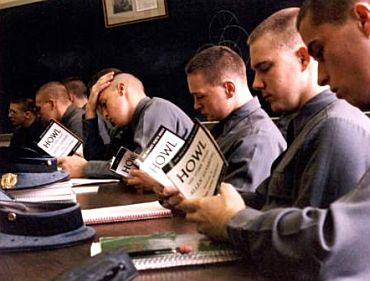Sunday, October 4, 2015
Bad Liquor Pond
A poem of mine, Bad Liquor Pond, is up at a new Baltimore based publication, Vector Magazine. There's some interesting work in it, including a version of Guess Who for Millennials, by John Durovsik.
Sometimes I forget where I get my titles from. Has this ever happened to you fellow writers? Especially poets. Place names and dates are usually self-explanatory, but sometimes you come across an old title and you have no idea how you came up from it. Usually I can place it to the Bible, Shakespeare, Pound, or Ginsberg. In this case, I must've been listening to this band while writing the poem in question.
Wednesday, April 23, 2014
On the Rusk and Poets Fighting Poets
Thursday, April 4, 2013
Not Waving but Drowning in My Own Fears
Tuesday, February 14, 2012
The Adventures of Pizarro Delacroix
Saturday, September 25, 2010
Howl: A Movie Review
Except for epics, poems usually don't get movies of their own. The poets are the ones who get the films, though rarely. Eliot and Keats were famous enough to have them. The reasons are simple, most poems do not have stories and are not long enough to sustain a film. Unfortunately, people also do not give the same attention to poetry as they do to prose as well, which means there is less of an in-built audience for an adaptation.
Tuesday, July 13, 2010
“I saw the best minds of my generation destroyed by brevity”

I recently read an attempt to create a Howl for my generation. I do not make the allusion myself, the author set it up so, with a single word title meant to juxtaposition with Ginsberg's poem. So comparisons can be made, the point of the poem in the first place. Doing so, one sees that it has its moments but it is no reincarnation, only a parody. However, it was not as good a parody as reading The Waste Land by Orson Welles. "Tweet" does not make it new, as another poet known for his use of homages would say.
I think it may have suffered from the formating of the website. Such a work needs space for the words to breathe. But mostly, it falls flat not in its diagnosing of the problem, but in its referencing. Instead of Ginsberg's use of his friend's adventures and his own intellectual endeavors as a source for an epic, Miller's work reads like a laundry list. It is in need of eyeball kicks and more skillful use in condensing.
These sorts of things have been written before. I remember reading a different one that was about the yuppies. A direction adaptation and twisting worked in this case because it was meant to comment on hos a generation had sold out, or at least refused to carry the flame of challenging assumptions. A Howl for my generation, to be taken seriously, requires a different sort of indignation and rage. It must tell the tale of us not destroying ourselves, but our being witnesses the self-destruction of everything around us. It must deal with how our birthright has been lost. I think it is fitting to consider ourselves a sort of Generation Esau.
Above all, the interesting thing is how Howl, a poem that was as free as any verse could be at the time, has now become its own form. Poems come from it, they have the same structure and make the same stops. A series of expectations is built into the nature of the references, how they are voiced, made, and changed, if indeed they are changed. The process starts right at the beginning. What minds did the author see, and how were they destroyed?



